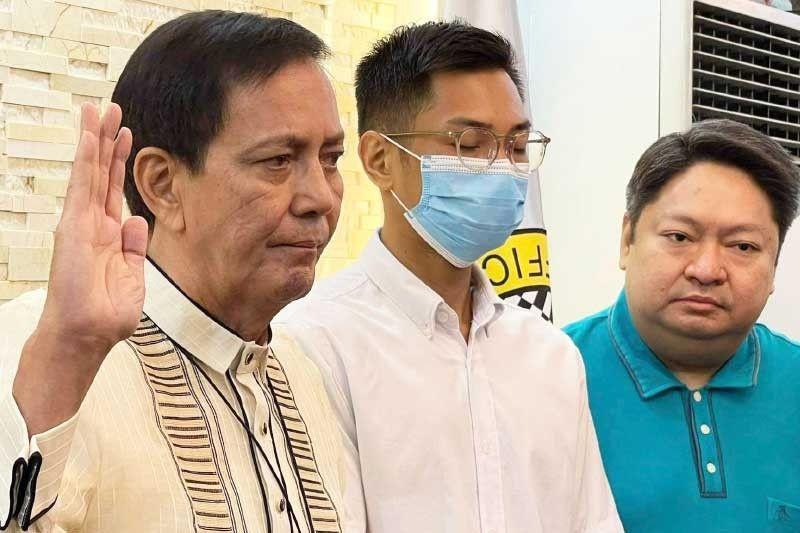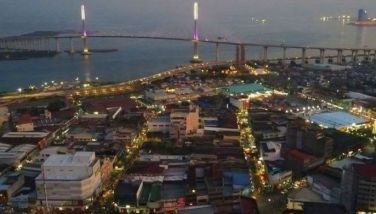Rama backs mandatory COVID-19 vaccination, at least for City Hall workers

CEBU, Philippines — Cebu City Mayor Rama will support the decision of the Inter-Agency Task Force (IATF) on COVID-19 to make vaccination mandatory among workers – at least in the city government.
“Why not? But, of course, I'll have to sit down with HR, City Administrator, DOH, City Health… then we will get the feasibility to get the entire picture,” Rama said.
In a resolution, IATF said vaccination of all employees in the public and private sectors will be mandatory starting December 1, 2021. The IATF issued the resolution upon the directive of President Rodrigo Duterte “for a whole-of-government solution to increase the demand for COVID-19 vaccination, regardless of brand, for a healthier and resilient Philippines.”
The IATF said employees who refuse to get vaccinated may still report to work as long as they can provide a negative RT-PCR test result.
But Rama is not so keen about the RT-PCR requirement as vaccines are not available readily, at least in Cebu City.
He said he will ask for personnel inventory on vaccination status. There are 27 departments at City Hall.
Rama is a strong advocate of vaccination, describing it as a way to liberation from the coronavirus and from the pandemic.
Earlier, Rama said the city will not release Christmas bonuses unless all workers are vaccinated, except those who cannot avail of the vaccine due to medical reasons.
IATF resolution
IATF Resolution 148-B says that in areas where there are sufficient supplies of COVID-19 vaccines as determined by the National Vaccines Operation Center (NVOC), all establishments and employers in the public and private sector shall require their eligible employees who are tasked to do on-site work to be vaccinated against COVID-19.
Eligible employees who remain unvaccinated, however, may not be terminated solely by this reason.
Instead, they will be required to undergo RT-PCR tests regularly at their own expense for purposes of on-site work. Antigen tests may be resorted to when RT-PCR capacity is insufficient or not immediately available.
In its Resolution 149, IATF said those who have been vaccinated partially in both the public and private sector and tasked to do onsite work need not undergo regular RT-PCR tests at their own expense, as long as their second dose is not yet due pursuant to the interval prescribed for the brand of vaccine received as first dose.
As for RT-PCR tests for purposes of onsite work, its frequency shall be construed as that determined by the employer but which should be at least once every two weeks.
Earlier, Interior Secretary Eduardo Ano said local government units (LGUs) have the authority to impose mandatory inoculation against COVID-19 and eliminate hesitancy and brand preference.
Año, in a report by the Philippine News Agency, said local chief executives have autonomous power based on Section 16 of the Local Government Code, that is, to issue executive orders and ordinances.
“So while we cannot really impose mandatory laws because we don’t have laws, national law, but at least through Section 16 of the Local Government Code, a local chief executive can issue executive order or ordinances that will protect his constituents. That is considered legal unless stopped by the court,” Año told President Rodrigo Duterte during a meeting with the National Task Force Against COVID-19 and medical experts in Malacañang.
IATF also said that effective December 1, public and private establishments may refuse entry or deny services to unvaccinated individuals or partially vaccinated despite being eligible for vaccination.
Cebu City direction
Rama said vaccinating all eligible residents in Cebu City is ultimate direction.
The city government is looking at inoculating all eligible populations by the end of the year.
“By December 31 (2021), dapat tanan, vaccinated na… Pwede diay na? Ato suwayan… basin diay pwede,” he said.
Opposition
But various labor groups are opposing the move, saying people should not be vaccinated against their will and that vaccines are still not available readily in all areas in the Philippines.
“Instead, every effort must be made to include Filipinos as active participants in the vaccination effort - a key cornerstone for a post-pandemic recovery,” said the Sentro Ng mga Nagkakaisa at Progresibong Manggagawa (SENTRO).
“We overcome crises because of our care and concern for one another. Covid-19 will be beaten simply because we Filipinos continue to help each other - from the hospitals, to our offices, and communities. This is the reason why coercion and punitive measures are not the solution to our current health crisis,” the group adds.
SENTRO said punishing the unvaccinated only instills fear by criminalizing people who have the right to be informed and consulted regarding the medical services available to them.
“Our issue is not vaccine hesitancy, but the lack of vaccine supply. Making vaccination a mandatory requirement would merely discriminate against the millions of Filipinos that simply do not have access to COVID vaccines in the first place,” it said.
The group argued that it is illogical and cruel to demand that all Filipinos be vaccinated when the government cannot even guarantee enough syringes.
“We call on the Philippine government to make vaccines and healthcare more accessible, instead of punishing those who are suffering the most because of the lack of investment in public health,” SENTRO said.
Atty. Aaron Pedrosa, secretary general of Sanlakas, said the recent Resolution of IATF shifts the burden of being vaccinated on the workers when the vaccination rollout of the government had been slow and unimpressive.
“It is penalizing millions of workers for the government’s ineptitude in terms of vaccination,” Pedrosa said.
As the country reels from the effects of an economic recession, Pedrosa said the last thing workers need is an additional expense in the form of mandatory RT-PCR swabbing when wages are low, prices of the commodities are high and the purchasing power has been severely impaired.
“Once again, the Government has opted to be burden to workers who are in desperate need of immediate economic relief,” he said. — Mitchelle L. Palaubsanon, JMO (FREEMAN)
- Latest























